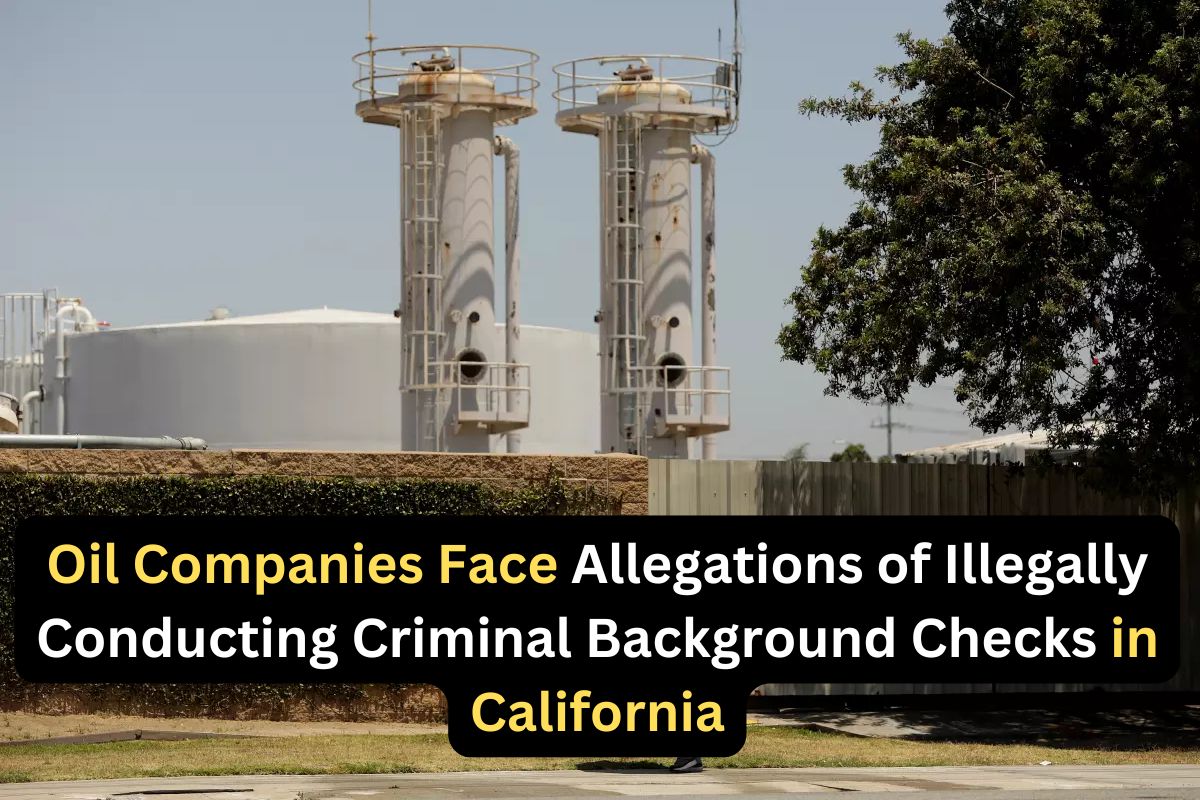Los Angeles, CA — August 14, 2024 — Several major oil companies are facing a lawsuit in California, accused of violating state laws governing criminal background checks for job applicants. The lawsuit, filed this week in Los Angeles County Superior Court, alleges that the companies unlawfully denied employment to qualified candidates based on their criminal histories, in violation of the state’s Fair Chance Act.
Allegations of Discrimination
The lawsuit, brought by a coalition of civil rights groups and former job applicants, claims that the oil companies involved—some of the largest in the industry—failed to comply with California’s Fair Chance Act, which prohibits employers from inquiring about a job applicant’s criminal history before making a conditional offer of employment. The law, which took effect in 2018, is designed to give individuals with criminal records a fair opportunity to secure employment without being automatically disqualified due to their past.
According to the lawsuit, the companies routinely conducted criminal background checks early in the hiring process and used the results to reject applicants, even for entry-level positions that did not require extensive security clearances. The plaintiffs argue that this practice not only violates state law but also disproportionately impacts communities of color, who are statistically more likely to have criminal records.
Details of the Case
The lawsuit identifies several oil companies by name, including Chevron, ExxonMobil, and BP, accusing them of systemic discrimination. It alleges that the companies’ hiring practices have unjustly barred thousands of qualified candidates from securing employment, perpetuating cycles of poverty and marginalization. The plaintiffs are seeking damages for lost wages, as well as injunctive relief to prevent the companies from continuing these practices.
The lawsuit also claims that the oil companies failed to provide applicants with the legally required notices and opportunities to explain or dispute the results of their background checks. Under California law, employers must inform applicants of their rights to request a copy of their background check and to provide evidence of rehabilitation or mitigating circumstances.
Advocates Call for Accountability
Civil rights advocates and labor organizations supporting the lawsuit argue that the oil companies’ alleged practices are part of a broader pattern of corporate disregard for worker rights. They emphasize that California’s Fair Chance Act was enacted to reduce barriers to employment for people with criminal records, recognizing that stable employment is key to reducing recidivism and supporting successful reentry into society.
“By flouting the law, these companies are not just breaking the rules—they’re denying people the chance to rebuild their lives and contribute to their communities,” said Maria Hernandez, a spokesperson for one of the civil rights groups involved in the lawsuit. “This lawsuit is about holding them accountable and ensuring that everyone has a fair chance at employment, regardless of their past.”
Response from the Oil Companies
As of this writing, the oil companies named in the lawsuit have not publicly commented on the allegations. However, legal experts anticipate that the case could have significant implications for how large employers conduct background checks in California. If the plaintiffs prevail, the case could lead to stricter enforcement of the Fair Chance Act and potentially result in substantial financial penalties for the companies involved.
A Broader Legal Context
This lawsuit comes amid increased scrutiny of corporate hiring practices in California and nationwide. In recent years, the state has strengthened legal protections for job applicants with criminal records, reflecting a growing recognition of the need for fair employment practices. The outcome of this case could set a precedent for how these laws are interpreted and enforced, with potential ripple effects across various industries.
As the legal battle unfolds, the plaintiffs and their supporters hope that the lawsuit will bring about meaningful change, not only for those directly affected by the oil companies’ practices but also for the broader workforce in California. The case is expected to draw considerable attention from both legal and corporate observers, given its potential to reshape hiring practices across the state.

